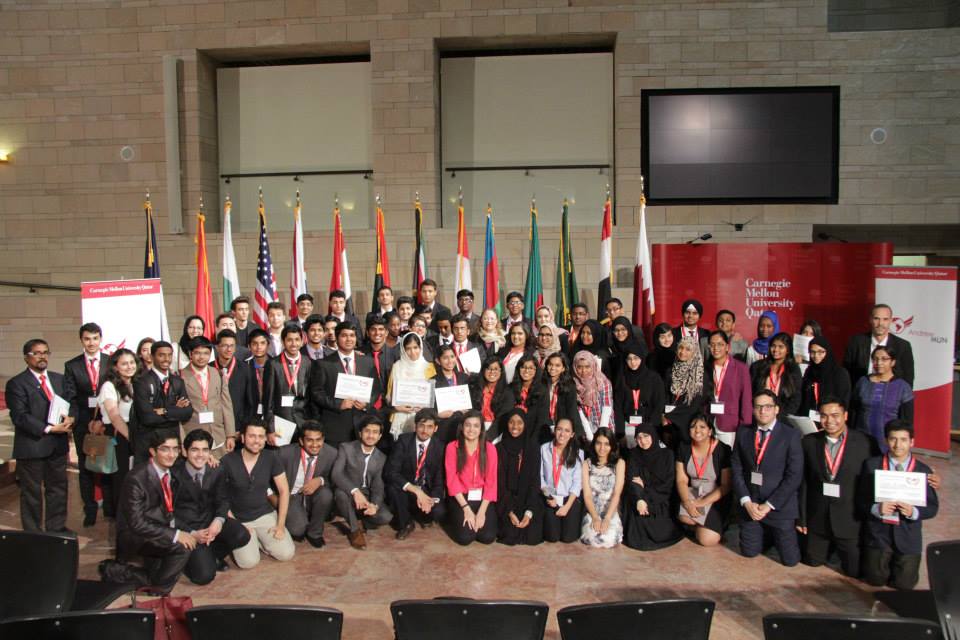Carnegie Mellon hosts its second annual Model United Nations Conference

The room was buzzing with excitement. Students in formal business dress fidgeted in their seats, arranging and re-arranging white placards that bore the names of the countries they were representing.
All eyes were on the clock. At 9 A.M., the second annual Model United Nations (MUN) Conference was now in session.
“MUN culture in Education City is a relatively new phenomenon. Georgetown has done it for quite a number of years, so we used that as an inspiration [to start something new]” added Yousuf Akhlaq, co-founder and president of the Andrew MUN club at CMU-Q. The club is named for Carnegie Mellon’s founder, the American industrialist Andrew Carnegie.
Held from November 1-2, Carnegie Mellon University in Qatar’s second annual Andrew MUN Conference hosted 76 delegates from five schools in Qatar. This was an increase from last year, when only 15 students participated in the inaugural conference.
“People who are participating here today are (the) leaders of tomorrow, and it’s all about awareness. MUN gives them a genuine and practical idea of the harsh realities that lie ahead,” said Akhlaq.
MUN are a simulation of United Nations conferences. Each participant represents an assigned country and debates global issues that are impacting the world today.
Andrew MUN simulated two UN committees this year: the General Assembly, and the Economic and Social Council (ECOSOC). Participants debated international issues such as transnational trafficking, privacy in the digital age, and the use of technology in peacekeeping missions.
Apart from CMU-Q upperclassmen, students from other universities in Education City also chaired committees at the conference.
According to Akhlaq, since Andrew MUN is a competition for high school students only, the positions of committee chairs were open for EC students, so they too could become a part of the growing MUN culture in EC.
“It was a very good learning experience, because I was introduced to a new format of MUN. However, what was most pleasing for me was to see that (the delegates) had such vast knowledge of complex topics like trans-national crimes,” said Zain Raza, a student of Texas A&M University at Qatar who chaired at the conference.
Mazen Loan, a Pakistani student at University of Southern California, also attended the conference to chair one of the committees.
“In Qatar, I noticed that the students know their stuff, but they have problems getting it across. While in other international conferences, I have noticed that students don’t really know their stuff, but speak well,” said Loan.
Loan said that in Qatar, students have very different outlooks on some of the topics. The MUN culture is not very prevalent here, but has the potential to grow, Loan added.
Akhlaq said the Andrew MUN club plans to expand the scale of the conferences in the future, and potentially open participation to university students as well.












